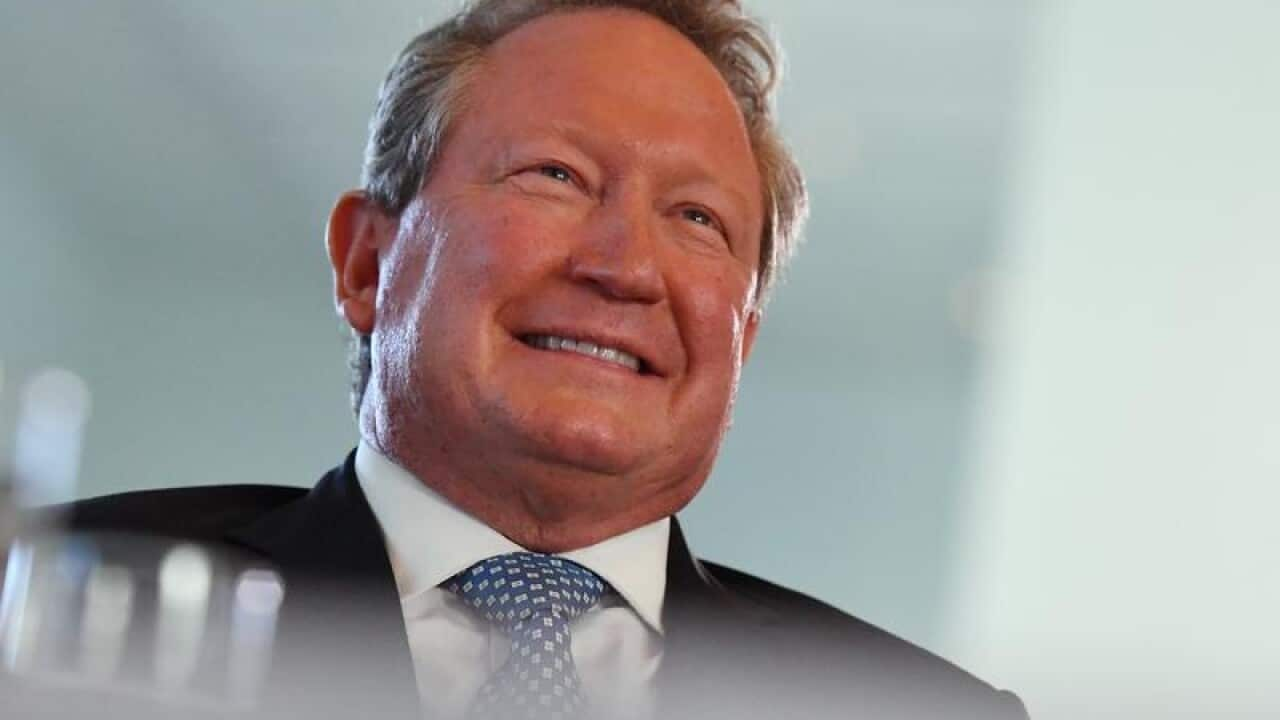Western Australian mining billionaire Andrew Forrest is preparing to launch legal action against tobacco firms as part of a campaign to raise the legal smoking age from 18 to 21.
Mr Forrest will seek billions in compensation for the damage caused by smoking products through the Eliminate Cancer Initiative (ECI), which falls under his and wife Nicola's philanthropic Minderoo Foundation.
His push is part of a wider attempt to convince state and federal governments to raise the legal smoking age in a bid to curb smoking habits that almost 90 per cent of adult smokers start as children.
"By the time they reach 21, they are hooked and become lifelong customers of big tobacco," Mr Forrest said.
Part of the $75 million funding the ECI receives will be used to launch a legal "assault" against tobacco companies, hopefully resulting in multi-billion dollar damages payouts.
"When tobacco causes many times more cost to the nation than it ever brings in revenue and creates extreme suffering before palliative care and death, there is something seriously wrong with any government in the world, particularly ours, tolerating it," he said.
Mr Forrest's proposal comes ahead of a meeting of the Council of Australian Governments in Canberra this week.
Cancer Council CEO Sanchia Aranda has offered cautious support for his idea.
"We know that if you can get people to delay starting smoking, then they're less likely to start at all. So age is very important," Prof Aranda says.
Professor Aranda is yet to see any modelling from Mr Forrest's Eliminate Cancer Initiative to show it will work, but believes it could be a first step towards cementing Australia's first smoke-free generation by imposing life-long bans on the sale of tobacco products to children born after a certain date.
Prof Aranda says the smoking rate among 14 to 18-year-olds is at an all time low, with 80 per cent of young Australians in that age group having never smoked.
A spokesman for global tobacco firm Philip Morris on Monday warned Mr Forrest litigation is not an effective means to reduce smoking.
"Courts around the world have rejected smoker lawsuits and class actions on the grounds that people who smoke with awareness of the risks do not have a legal claim when those risks materialise," the spokesman said.
"Instead of promoting costly litigation, we would encourage Mr Forrest to focus his attention on product developments that have the potential to substantially reduce the harms associated with smoking."
Western Australian Police Minister Michelle Roberts agreed on the health benefits that would stem from outlawing smoking for under-21-year-olds, but says more consideration on its policing is needed.
"It's just potentially another thing for police to have to police," she told reporters in Perth.
"You'd also have to contemplate that if you do make it illegal to smoke before the age of 21, what penalty would you be imposing and how much police time would that take up?"
Ms Roberts says there are other ways to deal with smoking and police are already targeting serious issues, such as meth and other drugs.
One Nation Leader Pauline Hanson and Greens Senator Sarah Hanson-Young both backed Mr Forrest's push, saying new and creative thinking is needed to stop Australians dying from smoking-related diseases.









